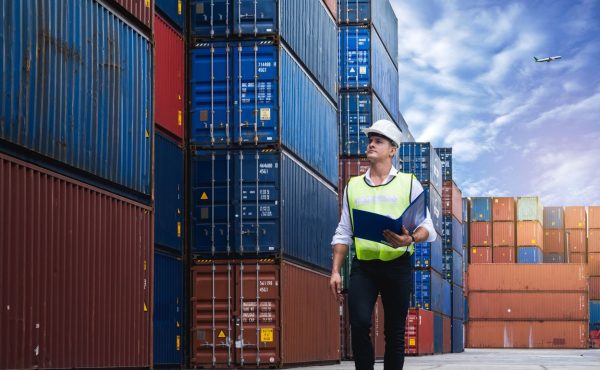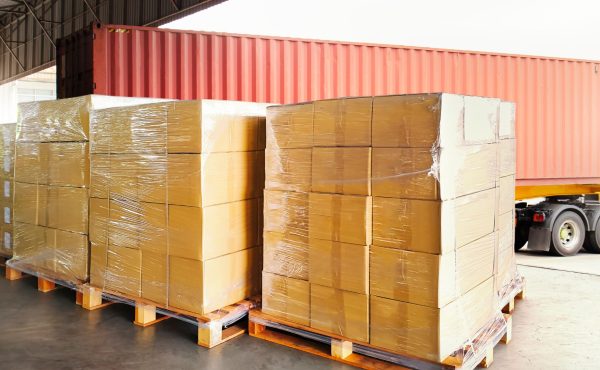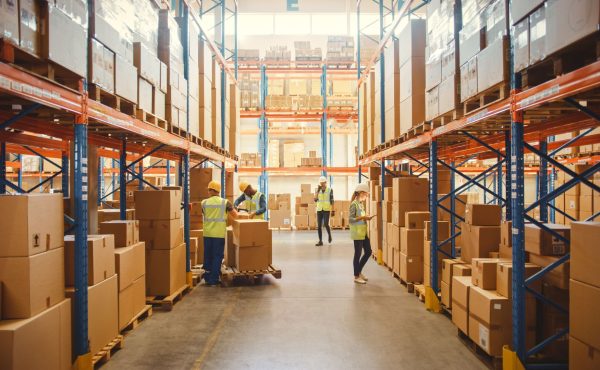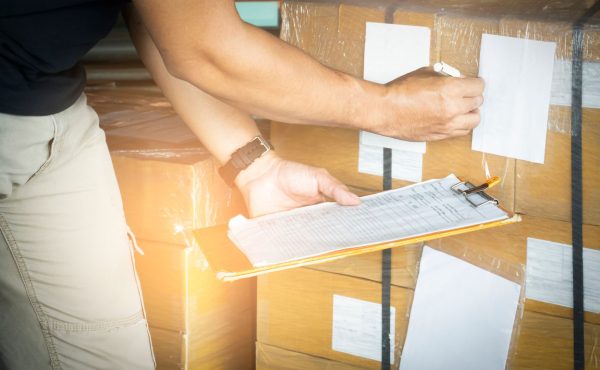Maritime transport to Brazil: how to export a good
What are the characteristics of maritime transport to Brazil?
Brazil is the largest country in South America and has a coastline of about 8,500 kilometers, through which are distributed more than 40 commercial ports for maritime transport to Brazil of different characteristics and specialized in various traffics.
According to the National Waterway Transport Agency (ANTAQ), until October last year, the sector had already handled 1,010 billion tons of cargo, an increase of 5.5% compared to the same period in 2020.
Brazilian ports
Brazilian ports can be of public or private ownership; the latter move a little more than 66% of the total volume of goods arriving by sea and the most important ones by traffic moved are Santos, Rio de Janeiro, Itapoá, Paranaguá, Itajai, Navegantes, Rio Grande, Vitoria, Suape and Pecém.
According to ANTAQ data, there are currently 175 cargo port facilities in Brazil, which include ports, maritime terminals and waterway facilities distributed along its 8,500 kilometers of coast”. The vast majority of Brazil’s foreign trade moves by sea; approximately 90% of imports and exports use sea transport, including those originating in or destined for neighbouring countries.
The ports of Santos, Suape and Rio de Janeiro broke records in terms of handling and revenue in 2021. According to the companies that manage the terminals, the main factors for this growth were the exchange rate and the high export of commodities.
The port of Santos is the largest in Latin America connecting over 600 ports in 125 countries, reached the mark of 147 million tons in cargo handling, a number 0.3% higher than that recorded in 2020. What motivated the result, according to the company, were the movement of containers, soy and fertilizers. In addition, the number of imports grew by 10.4%, totaling 43.9 million tons.
Spain increases maritime transport to Brazil
In 2017, maritime transport between Spain and Latin American countries reached 50.5 million tons, 15% more than in the previous year. Of this total, more than 35%, some 17 million tons, were import and export traffic with Brazil. It is also noteworthy that in 2017 maritime trade between Spain and Brazil experienced a growth of 45% compared to 2016.
“International trade between Spain and Brazil channeled through maritime transport grew by 45% in 2017 compared to the previous year”
Spanish exports channeled through maritime transport to Brazil amounted to almost 3 million tons and were essentially chemicals, cement, clinker and oil products.
Spanish imports from Brazil that moved by sea reached 14 million tons in 2017, being mainly iron ore, soya beans, crude oil, cereals and flours.
At Logisber we are experts in maritime transport to Brazil
At Logisber we have been experts in the Brazilian market for over ten years and we have our own office in the city of Sao Paulo, operating as Logisber Forwarding do Brasil Ltda. We know all the details of shipping to Brazil to get your goods to this country and we take care of all the necessary formalities and procedures.
To export a sea cargo to Brazil you must follow the requirements of the Receita Federal do Brasil, which is the entity that registers and identifies importers and exporters and allows the entry of the goods into the country.
Wooden boxes and pallets: Since September 1st of 2005, Brazil implemented the International Standards for Phytosanitary Measures ISPM nr 15 of the Food and Agriculture Organization of the United Nations – FAO. All the Brazilian exportation will have to follow the requirements of the countries integrated the ISPM no 15, means for all wooden packing and supports must be treated by companies’ Legal representative by the Ministry of Agriculture and identified with the international mark recognized by IPPC.
In addition to the commercial invoice, a Bill of Lading (B/L) is required to manage an export by sea to Brazil. This document, which is usually provided by the shipping company, includes information on the shipper, the carrier or freight forwarder and the consignee; the port of loading and the port of discharge; the final destination and place of delivery of the goods; the name of the ship and the voyage number; the number of the container; a description of the cargo and the quantity with weights and measures and details of the freight (cost of sea transport and surcharges, if any)
In addition to the B/L, the Packing List for a sea transport to Brazil must also be provided. This document is a list that the exporter gives to the carrier containing more detailed information about the goods, such as a description, the exact quantity, and the brands, numbers, and models of the goods to be transported.
It is also necessary to provide the Certificate of Origin, which serves to certify the origin of the goods before the customs office of the country of import and is essential to determine the applicable tariff. This document specifies where the product was manufactured and who produced it, as well as a complete description of the goods (weight, volume, marks). In Spain, the Certificate of Origin is issued by the Chambers of Commerce.
Finally, in the case of an international sale in which the exporter has agreed with the importer in Brazil to use the CIF or CIP Incoterms, the seller must contract international transport insurance.

Why is the Bill of Lading important?
The Bill of Lading is the most important document in a sea transport to Brazil because it functions as a receipt for the goods that the shipper delivers to the carrier for shipment; it determines the title or ownership of the cargo (which is transferred from the shipper at origin to the consignee who holds the B/L); and it is also a transport contract between the sea carrier and the consignee, because the former commits to deliver the goods at destination to the consignee, who presents the original bill of lading.
In other words, the B/L is the document that establishes the contractual relationship between the shipper (exporter or seller of the goods), the consignee of the cargo (importer or consignee) and the ocean carrier (shipping company). The Bill of Lading also specifies the terms, conditions and obligations of both the shipper and the carrier.
“At Logisber we take care of all the paperwork required for a maritime transport to Brazil”
If you are a shipper who needs a maritime transport to Brazil, through Logisber Forwarding do Brasil Ltda we will take care of all the documentary processing and advice you need to send your cargo to the final destination. Our experience and knowledge of the Brazilian market is the guarantee that the exporter needs for his goods to be delivered to the Brazilian importer.
Logisber knows the details that may affect the delivery of the goods in Brazil
Logisber’s experience in shipping to Brazil makes us aware of certain details that may affect the delivery of the goods at destination.
This is the case when there is a delivery of goods in Brazil and the original Bill of Lading is not presented, a circumstance that may generate certain discrepancies for legal purposes.
It is important to remember that the goods, once they arrive at the port of destination, are delivered to the person/company in possession of the B/L. Between 2013 and 2017, the obligation to present the original bill of lading was suspended in Brazil as a requirement for delivery of the goods to the importer or receiver of the goods. But now, following the publication of a subsequent law (Instrução Normativa no. 1759/2017, in force since 14.11.17), it has returned to the traditional legal regime.
During the pandemic of COVID-19 (2020-2021), the delivery of the original Bill of Lading as suspended and was permitted to present the copies of them. Nevertheless, according to the current law and the returning to standard operation, it is mandatory to deliver the original Bill of Lading to take possession of the goods arriving in Brazil by sea.
The current legal regime is in line with the traditional precepts of the Brazilian Civil Code, which require the delivery of the original (Article 754) and oblige the Captain of the ship to keep custody of the goods until the moment of delivery (Article 519). This also coincides with local customs regulations (Instruçao Normativa no. 680/2006) which confirm the need for the importer to deliver the original document (Article 84). Therefore, the previous regulation exempting the presentation of the original L/C (Instruçao Normativa no. 1356/2013) has been repealed.
“The knowledge of maritime transport to Brazil that we have in Logisber can avoid problems in the delivery of goods at destination”
In view of this situation, it is not necessary to incorporate any clause on the back of the Bill of Lading. It can be said that the clauses in this regard still maintained by some shipping lines on the Bill of Lading are obsolete and could be inconsistent with the rest of the clauses in the Bill of Lading.
But having said that, for any maritime transport to Brazil, from Logisber we recommend to make a reminder in the front of the document, indicating the following mention or similar: “Goods shall be delinered only against the original Bill of Lading”.
In order to avoid possible stoppages at the Brazilian customs, it will be necessary that this expression or any other similar one is clearly separated and outside the space of the description of the goods.
Categorías
Customs and regulations, International Trade, Sea transport
Compartir








